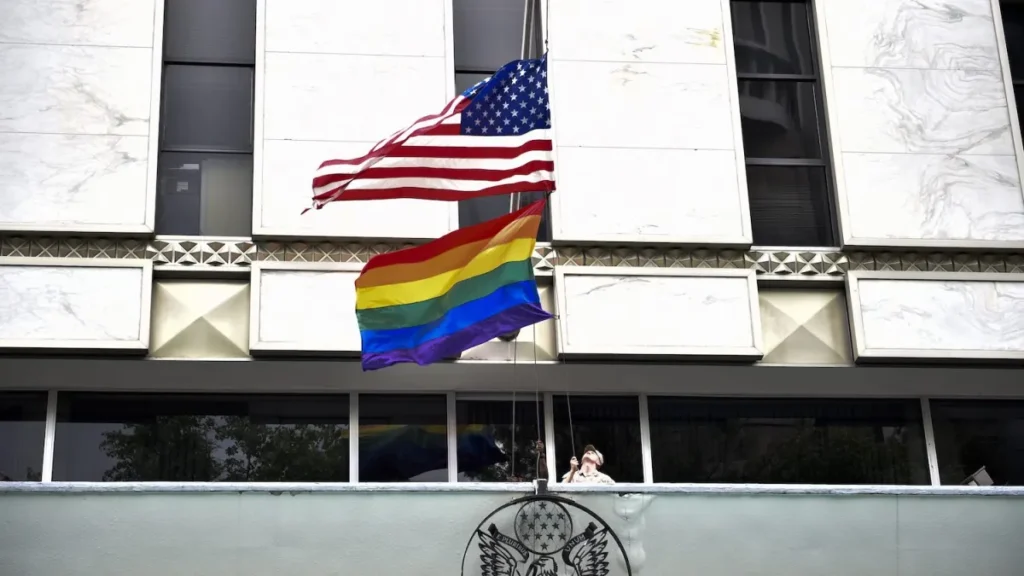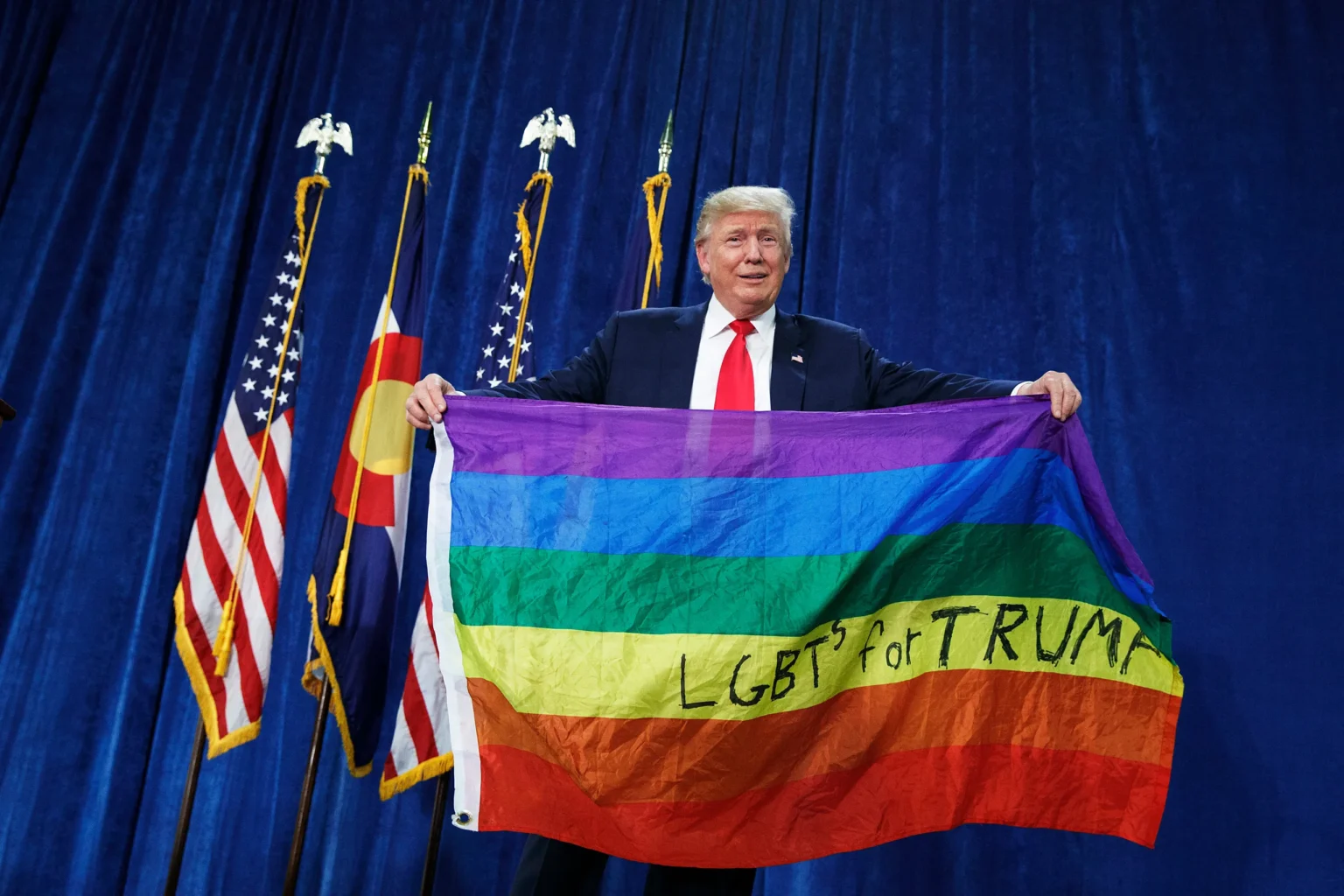President Donald Trump has officially signed into law a controversial ban prohibiting the display of the LGBTQI+ flag on federal buildings and U.S. embassies. This move has sparked significant backlash from advocacy groups, allies, and members of the LGBTQI+ community, while supporters of the law argue it aligns with traditional federal guidelines regarding flag displays.

The new law states that only the U.S. flag, state flags, and certain federal flags, such as military banners, may be displayed on federal properties or at U.S. embassies abroad. The measure specifically prohibits the flying of flags representing political or social causes, including the Pride flag, which has long been used as a symbol of support for LGBTQI+ rights and inclusion.
Supporters’ Arguments
Proponents of the legislation argue that federal properties and embassies should remain neutral and exclusively represent official government entities and symbols. “This law ensures that our federal spaces reflect the values and traditions of our nation, without endorsing any specific social or political causes,” said a Republican lawmaker in favor of the bill.
Backlash and Concerns
However, critics see the move as a step back for LGBTQI+ rights and visibility. Advocacy groups, including the Human Rights Campaign, have condemned the law, stating it undermines efforts to promote inclusivity and acceptance on a global scale.

“This decision sends a harmful message to LGBTQI+ individuals both here in the U.S. and around the world,” said a spokesperson for the organization. “The Pride flag represents love, equality, and the fight for basic human rights—values that the U.S. should stand for, not suppress.”
Implications for U.S. Diplomacy
The ban could also have implications for U.S. diplomatic relations, as many American embassies had previously flown the Pride flag to show solidarity with LGBTQI+ communities in countries where their rights are under threat. Critics argue that the new law undermines the country’s commitment to promoting human rights internationally.
Broader Context
The legislation follows a broader pattern of debates regarding the display of non-governmental flags on federal property. Similar disputes have arisen in recent years over the display of other flags, including the Black Lives Matter flag and those representing specific movements or causes.
As the law goes into effect, it remains a polarizing topic, highlighting the ongoing divide in how the government addresses representation, equality, and the symbolism of federal spaces.




